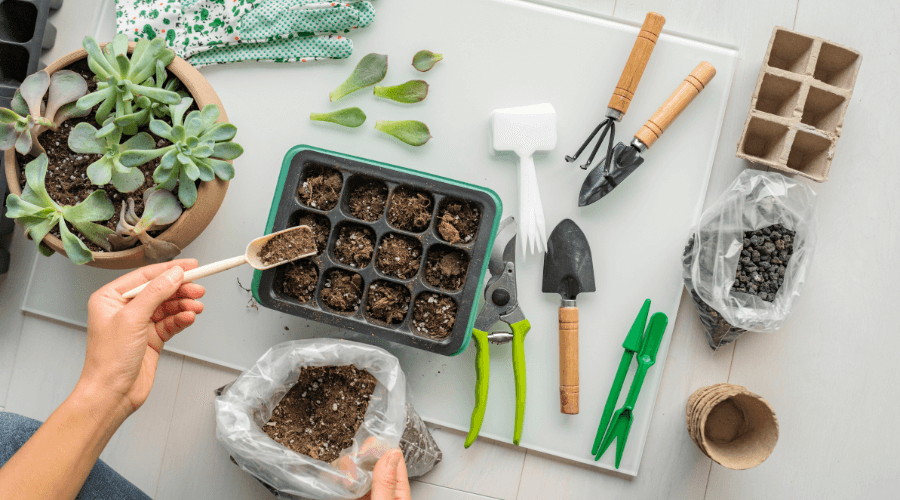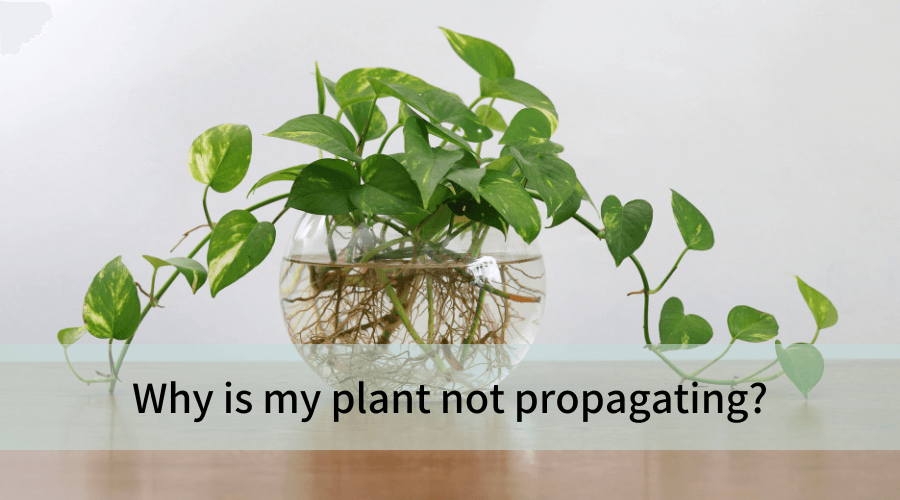Propagating plants is a rewarding and cost-effective way to expand your garden or indoor plant collection. However, it can be frustrating when your plant fails to propagate despite your best efforts. Several factors can contribute to unsuccessful propagation, from incorrect propagation methods to poor soil quality, lack of moisture, insufficient light, and pests or diseases. In this conversation, we will explore some common reasons why your plant may not be propagating and provide tips on troubleshooting and overcoming these obstacles. With the proper knowledge and techniques, you can increase your chances of success and enjoy the satisfaction of growing your plants.
Why is my plant not propagating?
Your cuttings are too long or have too many leaves.
When propagating plants through stem cuttings, it is essential to ensure that the cuttings are of the appropriate length. If the cuttings are too long or have too many leaves, they may be unable to produce roots effectively. This is because the cutting will expend its limited energy trying to keep the leaves alive rather than focusing on root growth.

Let’s now explore some common reasons why your plant may not be propagating and tips on troubleshooting and overcoming these obstacles. There could be several reasons why your plant is not propagating, including the following:
Incorrect propagation method
Using the correct propagation method for the specific plant species you are working with is essential. Different plants require different propagation methods, such as stem cutting, leaf cutting, division, or layering. Using an incorrect propagation method can fail to establish roots or even cause the death of the plant. Therefore, it is crucial to research and determine the appropriate propagation method for your plant species to ensure the best chance of success.
Poor soil quality
Soil quality plays a critical role in the propagation of plants. Soil that is too compacted or lacks nutrients can hinder root development and make it challenging for the plant to propagate. When propagating plants, it is essential to use loose and well-draining soil, allowing the roots to establish themselves quickly. Additionally, the soil should be rich in nutrients to support healthy plant growth. Therefore, it is recommended to use a high-quality potting mix or soil enriched with compost or other organic matter to provide the best possible growing conditions for your plant.
Lack of moisture
Moisture is another critical factor in successful plant propagation. Propagation requires a consistently moist environment for the roots to develop. If the soil dries out, the plant may not be able to establish roots and can wither and die. Therefore, keeping the soil evenly moist during the propagation process is essential. This can be achieved by regularly watering the soil or using propagation techniques such as misting or covering the cutting with a plastic bag to maintain humidity. However, it is equally important to avoid overwatering, which can lead to root rot and other problems. Thus, maintaining an appropriate moisture level is critical to ensuring the success of plant propagation.

Insufficient light
Light is critical in photosynthesis and developing new roots. Some plants require a lot of light to establish roots, while others prefer a more shaded environment. It is essential to understand the light requirements of the plant you are propagating and provide the appropriate amount of light. If a plant is not receiving enough light, it may struggle to establish roots and grow properly, resulting in stunted growth or even death. Conversely, a plant exposed to too much light may become scorched or suffer from excessive water loss. Therefore, it is crucial to research the specific light requirements of your plant species and provide appropriate light levels to ensure the success of plant propagation.
Temperature
Different plant species have different temperature requirements for successful propagation. Some plants require warm temperatures to establish roots, while others prefer cooler temperatures. Therefore, it is crucial to research the specific temperature requirements for your plant species and provide appropriate conditions. If the temperature is too cold, the plant may not establish roots; if it is too warm, it may suffer from heat stress, leading to poor root development. To ensure the success of plant propagation, it is essential to maintain the appropriate temperature range for your specific plant species. This can be achieved by controlling the environment’s temperature through heaters, fans, or other environmental control tools.
Pests or diseases
Pests and diseases can significantly impact your plant’s health and make propagating difficult. Infestations by pests or diseases can damage or even kill your plant, preventing it from establishing roots and growing. Therefore, it is crucial to regularly check your plant for signs of pests or disease and take appropriate action if necessary. Signs of pest infestations may include visible insects, discolored or distorted leaves, or wilting. Similarly, signs of illness may include rot, discoloration, or lesions on leaves and stem. Suppose you notice any signs of pests or diseases. In that case, it is essential to take appropriate action, such as removing affected plant parts, treating the plant with pesticides or fungicides, or quarantining the plant to prevent the spread of the infestation. By being vigilant and proactive, you can help ensure the success of your plant propagation efforts.
Time
Patience is an essential virtue when it comes to planting propagation. It’s important to remember that propagation takes time, and some plant species may take weeks or even months to establish roots and begin growing. It can be tempting to check on your plant frequently, but giving it time to grow and develop at its own pace is essential. Rushing the process or trying to force growth can harm your plant and hinder propagation. Therefore, it’s necessary to be patient and allow the plant to establish itself before adjusting or changing the environment or care routine. By providing the appropriate growing conditions and being patient, you can help ensure the success of your plant propagation efforts.
Conclusion
Plant propagation can be a rewarding and fulfilling experience, but it requires careful attention to several critical factors. These factors include selecting the appropriate propagation method, ensuring good soil quality and moisture, providing adequate light and temperature conditions, and monitoring pests and diseases. Additionally, patience is crucial when it comes to plant propagation, as it can take time for plants to establish roots and begin growing. By paying attention to these factors and being patient, you can help ensure the success of your plant propagation efforts and enjoy the satisfaction of watching your plants grow and flourish.
Recent Posts
Unlocking the secret to expanding your begonia maculata family is like discovering a treasure trove of green goodness. If you've ever marveled at the stunning beauty of angel wing begonia leaves and...
If you've ever found yourself marveling at the surreal beauty of air plant blooms, you're in for a treat! These enchanting bursts of color amidst a sea of lush green foliage are like nature's way of...

